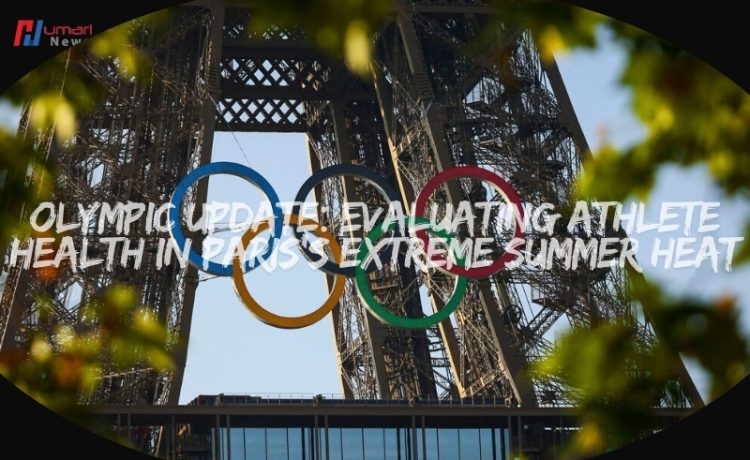The 2024 Paris Olympics are on the horizon, promising to be a spectacular event that showcases the pinnacle of athletic achievement. However, a looming threat casts a shadow over the excitement – extreme heat.
As Europe grapples with unprecedented temperatures, the health and performance of athletes are at significant risk. Dr. Nasiruddin G, a Consultant-Internal Medicine at Fortis Hospital, sheds light on the potential health challenges athletes may face due to the scorching heat.
Understanding Extreme Heat
Definition of Extreme Heat
Extreme heat refers to unusually high temperatures that deviate significantly from the average for a particular location and time of year. In Paris, summers have been experiencing a noticeable uptrend in temperature over the years.
Historical Temperature Trends in Paris During the Summer
The historical temperature trends in Paris during the summer months have been on the rise, with record-breaking heatwaves becoming more common. This trend poses a significant challenge for athletes who will be competing outdoors in the sweltering heat.
Physiological Impact on Athletes
The extreme heat during the Paris Olympics can take a toll on athletes’ bodies, leading to dehydration, heat exhaustion, and heatstroke. Dehydration occurs when athletes lose more fluids through sweat than they consume, leading to a decrease in performance and an increased risk of heat-related illnesses.
Heat exhaustion is characterized by symptoms such as dizziness, nausea, and excessive sweating, while heatstroke is a more severe condition that requires immediate medical attention.
Dehydration
Dehydration is a common issue for athletes competing in hot and humid conditions. It can lead to a decrease in blood volume, which in turn affects the body’s ability to regulate temperature and deliver oxygen to working muscles.
To prevent dehydration, athletes should consume adequate fluids before, during, and after their events. Sports drinks containing electrolytes can help replace lost nutrients and maintain hydration levels.
Heat Exhaustion
Heat exhaustion can occur when athletes push their bodies to the limit in extreme heat. Symptoms may include fatigue, weakness, headache, and muscle cramps. Athletes should listen to their bodies and take breaks when needed.
Moving to a shaded area, removing excess clothing, and drinking cool fluids can help alleviate symptoms of heat exhaustion.
Heatstroke
Heatstroke is a potentially fatal illness that needs to be treated right away. It happens when the body’s mechanism for controlling its temperature malfunctions and the body temperature rises to dangerously high levels.
Symptoms of heatstroke include confusion, rapid heartbeat, and loss of consciousness. Athletes should be aware of the signs of heatstroke and seek medical help if they or a fellow athlete exhibit these symptoms.
Overheating Onslaught
One of the primary concerns for athletes competing in extreme heat is the risk of overheating. Intense heat can disrupt the body’s natural cooling mechanisms, leading to a range of issues such as muscle cramps, dizziness, and even the life-threatening condition of heatstroke. The onset of exhaustion is accelerated, hampering athletic performance significantly.
Dehydration and Decline
During a heatwave, the body works overtime to regulate its temperature. This results in increased sweating, which leads to significant fluid loss and ultimately dehydration. Blood flow is redirected from the muscles to the skin to aid in cooling, which can reduce strength and endurance, affecting an athlete’s overall performance.
Mental Toll
Apart from the physical strain, the mental toll of competing in extreme heat should not be underestimated. Heat stress can result in irritability, difficulty concentrating, and impaired decision-making abilities. For athletes who have dedicated years to their training, the emotional strain of underperforming due to heat-related challenges can be overwhelming.
Specific Risks for Certain Athletes
Some athletes are more vulnerable to the effects of extreme heat than others. Endurance athletes like marathon runners and cyclists, who spend prolonged periods outdoors, are particularly at risk. Additionally, paralympic athletes may be more susceptible to heat-related illnesses due to underlying conditions that affect their ability to regulate body temperature.
Dr. Rakesh Gupta, a Senior Consultant at Indraprastha Apollo Hospitals, highlights the importance of safeguarding the health of paralympic athletes, noting that over 21% experienced heat stress symptoms during the 2020 Tokyo Games.
Combating the Heatwave
Despite the challenges posed by extreme heat, there are strategies that athletes can employ to mitigate the risks and ensure their well-being during the Paris Olympics. Dr. Nasiruddin emphasizes the following:
Hydration is Key:
Athletes must prioritize proper hydration with water and electrolyte-rich fluids to maintain optimal performance.
Cooling Techniques Matter:
Pre-cooling methods such as cold showers and wearing lightweight, breathable clothing can help regulate body temperature.
Listen to Your Body:
Athletes should pay close attention to their physical cues, adjusting training intensity, seeking shade, and withdrawing from competition if necessary. Acclimatization training can also improve heat tolerance.
Conclusion:
In conclusion, athletes at the Paris Olympics will face significant health challenges due to extreme heat. Heat exhaustion and dehydration can affect their performance and overall well-being. To combat these risks, proper hydration, cooling strategies, and acclimatization will be crucial. Organizers must prioritize athlete safety through scheduled adjustments and adequate support. By addressing these challenges, the Olympics can remain a showcase of human endurance, even in tough conditions.







